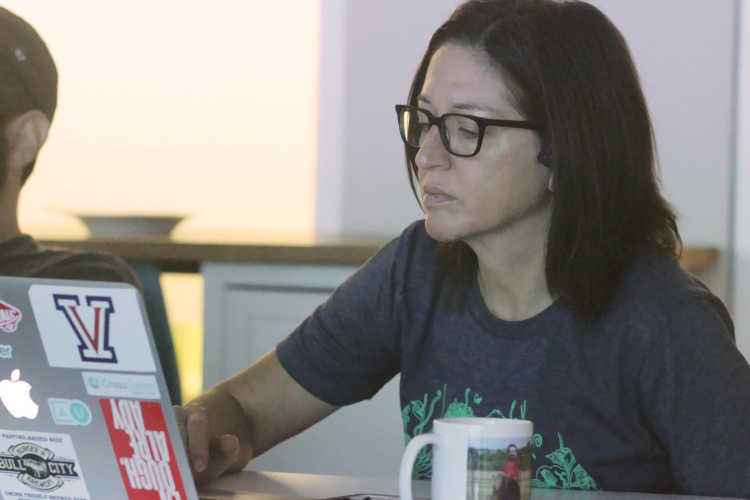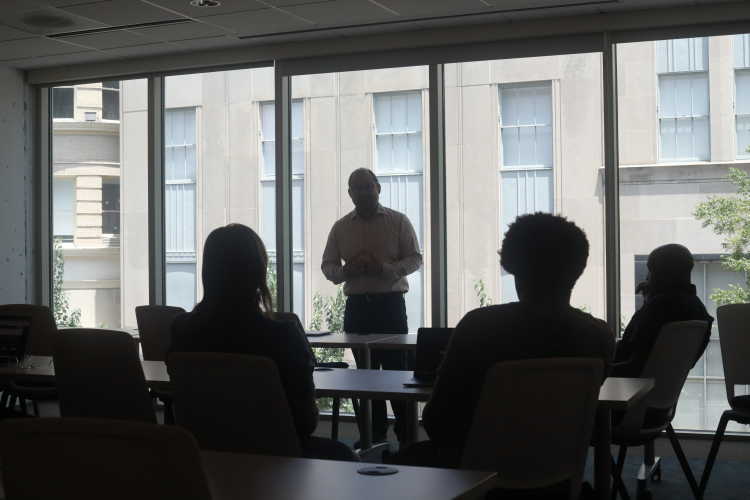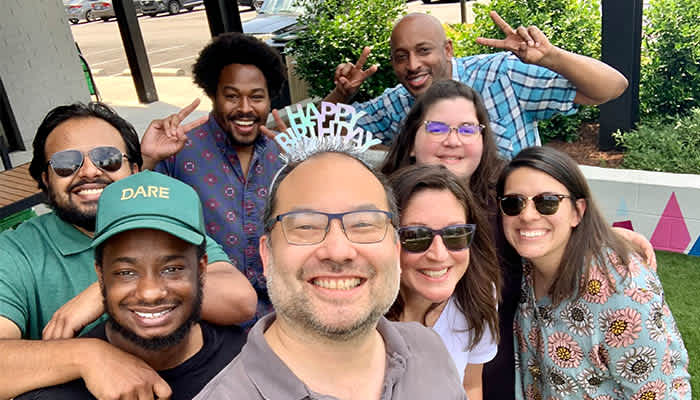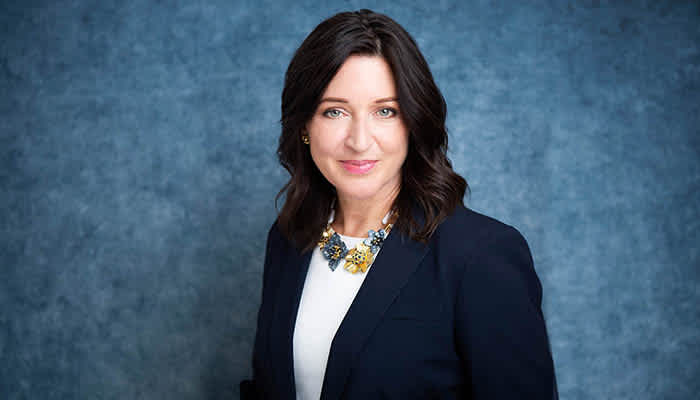This year marks a decade of working for CrossComm. Ten years ago, I was a single mom juggling personal and work responsibilities. I would come to the office two and a half hours a day, three mornings a week. I literally had only 15 hours a week to offer. That was what worked with my children’s schedules because I had some little ones in a preschool program, and others who were at school all day. Fortunately for me, CrossComm needed a part-time bookkeeper at the time.
A Decade of Growth at CrossComm
Over the years, CrossComm showed me great trust and flexibility, allowing me to do part of my job in the office and part at home. And any time I had the opportunity to work on other projects for the company, I said, yes. Sometimes it was something I knew enough about, and could do easily. Other times it was a big leap for me. But I did the research and figured it out, and I just kept saying yes to learning new things. It eventually led to my growth, expanding my role, and realizing my passion for human resources. Ten years later, I'm the Director of People Ops, a full-time position, and I love it.
A Passion for People
When I think about where specifically my passion lies, it’s in taking care of our team. I enjoy that personal interaction, and seeing people grow, even being here for people when they're having a tough day. We come to work five out of seven days a week. The likelihood that some of the worst days you’ll ever have in your life will happen on a work day is pretty high.
If you feel like someone at work can hear and understand you, and not just tell you, “Well, the handbook says you can have two days off for this event,” that is, to me, building an invaluable work culture. I’ve been there, and so if I'm in a place to hear, to listen, and to provide some level of comfort to someone who is having one of the worst days of their life, then I consider that a privilege and a calling.
This is one of the reasons why I am writing this blog post. I hope to share some lessons learned from my decade of growth at CrossComm. I also hope my insight will help other companies foster a psychologically safe and growth-minded environment, no matter an employee’s background and experiences. Maybe this post can also inspire someone who is having a similar moment in life to what I had 10 years ago, someone who might incorrectly feel they have nothing to offer. I challenge you by saying, you have no idea where you’ll be 10 years from today.
Lessons Learned From Personal Growth
1. Make it Known
I think the biggest takeaway from my career journey can be felt by many women. As women in corporate America, and as working moms, we tend to sell ourselves short. We tend to think that people have a certain view of us in general, and that we could only fit specific roles. To add to that, I didn’t come from a traditional career path, and never obtained my bachelor’s degree. I do have two associates degrees and great experience managing the finances and admin for a small business I co-owned for 14 years. That was probably one of my biggest selling points for CrossComm. Given the experiences and background that colored my perspective when I first got here, I had my own self-limiting belief about taking on more than a finance-leaning position.
My words of advice for people who find themselves in this situation: If someone gives you an opportunity, and you're in a place in life where you want to advance your career –make that known.
Once I got comfortable in my bookkeeping role, I saw the way things had been done and I had some ideas about how they might be done better. I presented my ideas and asked to help where needed. Sometimes my ideas weren’t accepted, but I didn’t let it dissuade me. For those who might hesitate, don’t let the no’s stop you. You keep offering, you keep selling.
2. Work For The Role You Want
I've heard it said that you should dress for the role you want, not the role you have. Well, we have a different landscape today in the corporate world so I will reframe it as, you should work towards the role you want and not the role you are being paid to do.
Many might feel it is unethical to work beyond your current role, and I'm not here to say whether it is or it isn't. I know there are large companies out there that have a tendency to take advantage. I am fortunate to say that was not my case, and can only speak to what worked for me. What I learned is, if you want to advance, especially if you're coming from a background where you may not have the education your peers may have, your experience becomes your education.
3. Put It On Your Resume
If you've had the opportunity to gain the experience, put it on your resume. Then, apply for roles in your company. If they're only willing to keep you at your current role, then simply apply for roles outside that company. You've done the hard work, whether it's in your job description or not, and you can prove that you have developed that skill. For example, I evaluated healthcare insurance contracts. That wasn’t part of the bookkeeper job description, but when we decided to offer benefits, we were prepared to choose the best one. Opportunities to learn about new things outside of bookkeeping have led me to where I am today, working on my passion in people ops.
Lessons Learned to Create Growth
1. Bring in Diversity of Experiences
Here at CrossComm, we have come to find that diversity brings perspectives to the table that inspire our growth and innovation. What I love about where I work is that we welcome people from many races, religions, ethnicities, gender identity, sexual orientation, and different physical abilities. Another important way our diversity shows up is the diversity in educational and professional work experiences of our team.
The diversity is a reflection of our concerted efforts in the hiring process. As an example, we don't require certain degrees or certain backgrounds when hiring our software developers. We do have a series of interviews and tests to assess their skills. However, I can absolutely see someone coming to CrossComm with no educational background beyond high school, and who has learned software development by attending a code school. Here at CrossComm, if the necessary skills are present, that motivation and hard work will make you as competitive a candidate as someone with a Bachelors in Computer Science from Harvard.
Likewise, someone with an entrepreneurial mindset and who has owned their own business has their own set of knowledge and experience that has shaped them, and it could make them a great asset for the company too. Ultimately, if any person comes to us for a job with the skill set required and the character that we look for, which is someone who has integrity and unique life experiences, we are excited to bring them on.
2. Hire for Cultural Impact
The very first interview that candidates for a role here at CrossComm do is with me. I have a series of questions that Don, our CEO, and I collaborated on together. The questions are designed to let the person tell us who they are. These questions are not really about skillset at all. They help us understand whether a candidate is the right cultural fit, but more importantly, what can they add to our culture at CrossComm? What kind of cultural impact will they have as a member of our team?
CrossComm is a small entrepreneurial-minded business, which may not be for everyone. Some people do much better in a larger corporation where there are multiple people who have their same job title, who they can rely on and reach out to. Some companies require a certain amount of work product completed, or a certain amount of code, and that's it. That’s not us. In our company, you may be the only person on your dev team that holds the title of mid-level mobile developer, and that could be uncomfortable for some people.
Someone who is a good cultural fit for us displays a willingness to grow in an entrepreneurial environment. When looking for opportunities to make a cultural impact, we also look for someone who can mentor others. We learn about these capabilities early in the interview process where we can determine whether the person will be able to reach out if there's a problem, ask questions, and contribute insight and solutions based on their knowledge, work, and life experiences.
3. Foster Psychological Safety
We have a strong commitment to help our employees feel supported, engaged, and able to excel in their careers. A key part of this mission is to build a psychologically safe workplace essential to fostering growth. We try to build an environment where our team can be vulnerable enough to share comments and feedback that point out opportunities to improve our teams and company.
Additionally, if our employees are interested in developing more talent and skills, we try to help them incorporate it in a way that can benefit the company. An employee should not be scared to share that they are developing a skill set outside of work, or that we’ll look at them differently just because they are trying to make a leap to something new. That is not the environment that we create. We will make opportunities happen wherever we can, and we encourage managers to ask their direct reports: What else are you interested in doing? Where do you see your career going? What else would you like to learn?
4. Create an Open Path to Growth
If we don't have a career path at CrossComm that aligns with the professional development goals for an employee, we then work with the employee to find their path. At CrossComm, we are creating an open transition policy where, as an employee begins to branch out and look for that career path outside, we will support their journey. We won't terminate them while they are looking for jobs outside the company. They can stay employed, keep continuing to contribute, while exploring opportunities outside of CrossComm.
When they land that role, we congratulate them, and ask them to stay long enough to train their replacement. This policy is founded on the idea that everyone leaves here as an alumni because I don't care how big this world gets, it’s also very small. Who knows - we may be able to do business with this person in the future. And if not, we can at least catch up over coffee.
5. Give Them a Chance
To all the companies out there, my biggest advice is to give people a chance. Think beyond the job description scope, and rethink how you may have assessed candidates before. As far as hiring, look at who people are and what they bring to the table. Don't be swayed by certain titles, certain college degrees, and whatever else looks good on paper. My caveat is that it doesn't mean those people can't be good employees, it just means there are other metrics for success. It's important to dig deeper into the person that's before you, take the time to get to know them, and let them tell you who they are. If you listen, people will show their character and then you can determine if that person is a good fit, and whether they will provide a positive cultural change in your company. That’s what really matters!
Reflections on the Years to Come
The other day I was reflecting on the Clifton Strengths test that everyone in the company took to discover our individual unique strengths. One of my top five is connectedness, and it’s really who I am 100%. I think all things are connected and there's a reason for everything. I joked with a friend the other day about how I firmly believe the reason that I had six children and two husbands is to learn about personalities and how to relate to people who approach the world with a different mindset than myself. Whether that's true or not, those experiences have really shaped me, and have served me well in this role.
Reflecting on my own future, I would like to return to school to get my bachelor's in organizational psychology, then work in that capacity in the future. Then again, who knows? Maybe I won't pursue the piece of paper because I already get to accomplish a similar role here at CrossComm.







